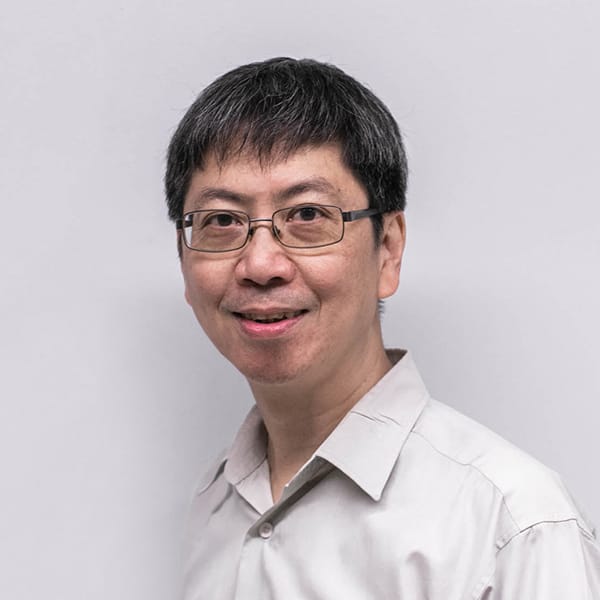Dr. Kwong has more than 20 years of professional social work experience in health and mental health sectors, including 15 years of administrative, managerial, supervisory and consultation experience as well as grant development experience. He has been a full-time social work educator since 2007. Much of his social work, community health practice, and health disparity research has been focused on low-income Asian immigrant populations in urban settings. He has developed a crucial and in-depth understanding of the barriers and socio-economic constraints faced by immigrants attempting to access health and mental health treatment. At Touro GSSW, he serves as the Chair of the Social Work Research Curriculum and directs the Asian American Social Work Initiative. He teaches social work research courses, Human Behavior and the Social Environment III, Identity and Social Justice, and an advanced clinical elective in social work practice in health care.
Grant Collaboration
Dr. Kwong completed pioneer and extensive research on the phenomena of prolonged separation and reunification among New York City Chinese immigrant population - the practice of sending infants back to China to be cared for by relatives until they reach school age. Because of his research expertise in this area, he was invited to serve as a research collaborator and consultant for a NIH K99/R00 Award Grant Proposal “Early and Prolonged Parent-Child Separation and Reunification: Mental Health among Affected Chinese-American Youth”, led by a postdoctoral fellow, Shaobing Su (PI) affiliated with Boston College School of Social Work. The proposal is currently under review for funding consideration.
Education
- B.S.W., Hong Kong Shue Yan University
- M.S.W., University of Alabama
- Ph.D., the Graduate School and University Center, City University of New York
Research
Dr. Kwong’s research is closely aligned to his social work practice interests and his teaching, through its focus on value-based knowledge, and relevance to social work education. In his recent article “Teaching Microaggressions, Identity, and Social Justice: A Reflective, Experiential and Collaborative Pedagogical Approach” published in International Journal of Higher Education in 2020, he described and evaluated five sets of reflective, experiential, and collaborative activities in a social justice course designed to help students examine the histories of various identity groups that have experienced discrimination and oppression and increase their self-awareness of both privilege and personal bias in one’s life.
Dr. Kwong has been a lead scholar in his groundbreaking research that documented the career experience, stress, and well-being among Asian-American social workers. His completed study, “Career Choice, Barriers, and Prospects of Asian American Social Workers” with two published articles following the study in 2018, was the first survey of more than 200 Asian American social workers and graduate students in the U.S. Among the topics explored were relationships between immigration status and family influence of career choices, perceptions of glass ceilings, discrimination, organizational fairness, and career prospects; work-related stressors and health problems; and factors contributing to job satisfaction or burnout; and how stress is managed. Because of the significance of this research, Dr. Kwong was frequently invited to share his insights and research findings at various organizations and networks, which was a catalyst for an in-depth exchange among health, mental health, social service, and educational professionals to address critical issues related to Asian American helping professionals’ career experience.
Recently, Dr. Kwong built on this research and published an article “Work, Stress, and Well-Being of Healthcare and Human Service Professionals During Outbreak of COVID-19” in the International Journal of Healthcare in 2021. The study surveyed 220 direct service providers in health, mental health, child welfare, family services, schools, and special programs in New York City and found the employees experiencing occupational stress – such as work/life balance, challenging clients, and limited support and resources to cope with COVID-19 – were more likely to have physical and psychological problems. Dr. Kwong called for further investigation of the risk factors to inform public policy and development of interventions for healthcare and human service professionals, to help reduce health and mental health problems and enhance their success on the job.
Dr. Kwong has developed strong interest in research pertaining to health and mental health disparities and healthcare experiences of low-income immigrant populations. In 2022, he published a lengthy chapter “Special Populations: Asian” in the 2nd edition of Comprehensive Clinical Psychology edited by Gordon Asmundson. By reviewing and referencing to a hundred articles, he presented critical challenges and unmet mental health needs of Asian Americans and discussed several selected mental health problems that were disproportionately prevalent in certain subgroups of Asian American populations. Culturally adapted evidence-based mental health interventions to address these issues for Asian Americans were also presented.
Publications
- Kwong, K. M., & Asmundson, G. J. (2022). Special Populations: Asian. Comprehensive Clinical Psychology (2nd), 33-51. Retrieved from https://touroscholar.touro.edu/gssw_pubs/97
- Kwong, K. M. (2022). 9.03 Special Populations: Asian. Comprehensive Clinical Psychology (2nd Edition), 9, 33-51. https://doi.org/10.1016/B978-0-12-818697-8.00071-6
Kwong, K. M. K. (2021). Work, stress, and well-being of healthcare and human service professionals during outbreak of COVID-19. International Journal of Healthcare, 7(2), 15-21. https://doi.org/10.5430/ijh.v7n2p15
- Kwong, K. M. K. (2020). Teaching microaggressions, identity, and social justice: a reflective, experiential and collaborative pedagogical approach. International Journal of Higher Education, 9(4), 184–198. https://doi.org/10.5430/ijhe.v9n4p184
Kwong, K, M, K,. (2018). Career choice, barriers, and prospects of Asian American social workers. International Journal of Higher Education, 7(6), 1-12. https://doi.org/10.5430/ijhe.v7n6p1
Kwong, K. M. K. (2018). Assessing secondary trauma, compassion satisfaction, and burnout – Implications for professional education for Asian-American social workers. International Journal of Higher Education, 7(5), 75-85. https://doi.org/10.5430/ijhe.v7n5p75
- Lin, J. L. L., Chan, M., Kwong, K., & Au, L. (2018). Promoting positive youth development for asian american youth in a teen resource center: Key components, outcomes, and lessons learned. Children and Youth Services Review, 91, 413-423. doi:10.1016/j.childyouth.2018.06.040


